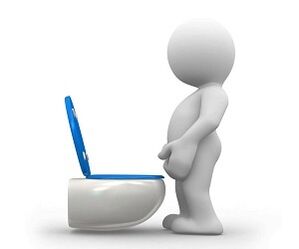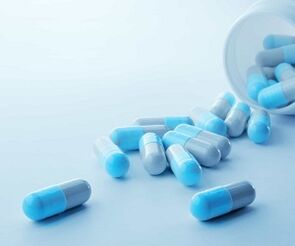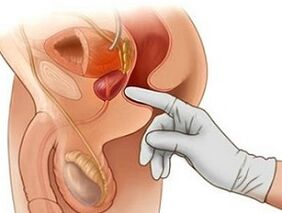Prostatitis is the most common disease of the genitourinary system in men of childbearing age.When prostatitis occurs, the prostate becomes inflamed and swollen.
The disease is treated conservatively.Patients are prescribed medications that help improve diuresis, relieve inflammation of the gland, and suppress disease-causing microbiota in the prostate.
Treatment is supplemented by diet, physical therapy, and many other activities.Patients may receive physical therapy, including prostate massage.
Causes of prostatitis
Prostatitis is a disease associated with inflammation of the glands.The most common progression of the disease is due to the introduction of pathogenic microbiota into the prostate.In addition, not only bacteria, but also fungal microorganisms can cause inflammatory processes.
Prostatitis is often the result of sexually transmitted diseases, including candidiasis, trichomoniasis, syphilis, human papillomavirus, chlamydia, and others.
Other factors can also trigger the prostate inflammatory process, namely:
- Lack of physical activity.
- Prolonged abstinence or, conversely, excessive sexual activity.
- Unbalanced diet, obesity.
- Presence of chronic diseases of the genitourinary system.
- Perineal injury.
- Hormonal imbalance, including insufficient synthesis of testosterone (the male sex hormone).
- Harmful working conditions.
- Overheating of the pelvic area.
- Low temperature.
- Smoking, drugs and alcohol.
Important!Congenital lesions of the urethra can also cause prostate inflammation.
Prostatitis Symptoms and Diagnosis

When considering the causes of prostatitis in men and its medical treatment, the symptoms of the disease cannot be ignored.As you know, prostatitis can have different causes.
Doctors differentiate between congestive, fungal, nonbacterial, bacterial, autoimmune, asymptomatic, and allergic prostatitis.The most common forms are stagnant and bacterial.
Characteristic symptoms of prostate inflammation are:
- Frequent urge to urinate.Increased frequency at night.
- Urination is intermittent and painful.If prostatitis is caused by pathogenic microorganisms, the urine will become cloudy and purulent/coagulated/mucus impurities will appear in it.
- Breach of validity.In severe cases, erectile dysfunction can occur.
- Premature ejaculation.In contrast, men with prostatitis are unable to ejaculate for long periods of time.
- Perineal and pubic pain.The pain syndrome worsens during sexual intercourse and urination.
- constipate.
- Burning and itching in the urethra.
As acute bacterial prostatitis develops, men will develop symptoms of poisoning.The body temperature rises, causing general weakness, insomnia, and irritability.
If symptoms characteristic of prostatitis occur, a urologist should be consulted.Diagnosis involves performing a series of tests and instruments.
Patients undergo prostate ultrasound, prostate LBC culture, digital rectal examination of the prostate, general and biochemical blood tests, urine test, PSA blood test, PCR and semen test.
Important!After diagnosis, the doctor will make a diagnosis and prescribe appropriate medication.
What drugs are used for prostatitis?

In the treatment of prostatitis, antibiotics are the basis of treatment.Use broad-spectrum antibiotics.Patients can be given cephalosporins, fluoroquinolones, macrolides, and penicillins.
Antibiotics suppress the infection and thus stop the inflammatory process in the prostate.
In addition to antibiotics, the following drugs are prescribed:
- Alpha adrenergic blockers.Medications are used to treat both prostatitis and prostate adenomas.Medications can help improve diuresis and relieve discomfort during urination.The drug should be taken for a long time.
- NSAIDs.They are used during exacerbations of prostatitis.Medications can help relieve pain.NSAIDs are available in the form of tablets, injections, and suppositories.
- Hormone drugs.Nonsteroidal anti-inflammatory drugs (NSAIDs) are prescribed if they don't help relieve pain.
- Biological regulatory peptides.These medications contain bovine prostate extract.Modern peptides help to stop the inflammatory process and improve tissue nutrition.These products also help normalize function and blood circulation in the pelvis.
For auxiliary purposes, you can use medicated dietary supplements, homeopathic remedies, and naturopathic remedies.Medications can even be taken to prevent prostatitis.
If you need to normalize potency, you can use PDE-5 inhibitors, homeopathic remedies, or dietary supplements.
It is worth noting that 5-alpha reductase inhibitors are not suitable for prostatitis.These drugs are used to treat benign prostatic hyperplasia.
Important!If the diagnosis shows stones in the prostate, the patient is scheduled for surgery.
Other suggestions

Medication alone to treat prostatitis is not enough.To bring the disease into stable remission, complex, well-structured treatment is required.
If the disease is stagnant, digital massage of the prostate must be performed.This procedure must be performed by a urologist.If you don't want to go to the doctor as often, you can buy a prostate stimulator.
This device will help you get a massage at any convenient time of the day.The instructions for the stimulant say it must be inserted into the anus.Begin by giving a cleansing enema, placing a condom on the device, and disinfecting the anorectal area.Modern massagers have vibrating heads, which help increase the effectiveness of physical therapy sessions.
Patients are also advised to:
- Limit the amount of fats, sweets, and starchy foods in your diet.Ideally, follow a low-carb diet.
- Engage in exercise therapy and live an active lifestyle.Playing sports is entirely possible.The most useful exercises are swimming, Nordic walking, running, yoga.
- Be sexually active.Barrier contraception (condoms) must be used.Regular sex will improve blood circulation in the pelvis and the outflow of prostate secretions.
- Follow your daily routine and sleep 6-8 hours a day.
- Give up bad habits.Scientific reviews have proven that men who smoke, take drugs and drink alcohol are more likely to develop prostatitis.That's why doctors recommend giving up these bad habits once and for all.
- When treating prostatitis, traditional methods can be used.They are not a panacea and can only serve a complementary role.Good folk remedies include hazelnut infusion, mugwort infusion, propolis suppositories, parsley infusion.
To sum up, we can conclude that prostatitis is not a death sentence.This disease is completely treatable.If you seek medical attention promptly, you can get rid of the disease quickly and almost painlessly.
You should not let the disease run its course, as prostatitis is an extremely dangerous condition.Left untreated, it can lead to prostatic hyperplasia, prostate cancer, infertility, impotence and premature ejaculation.

























